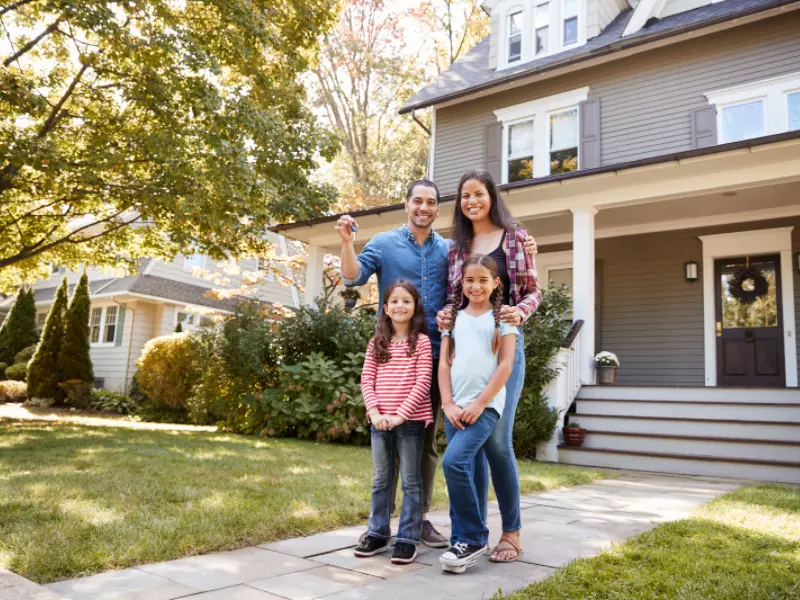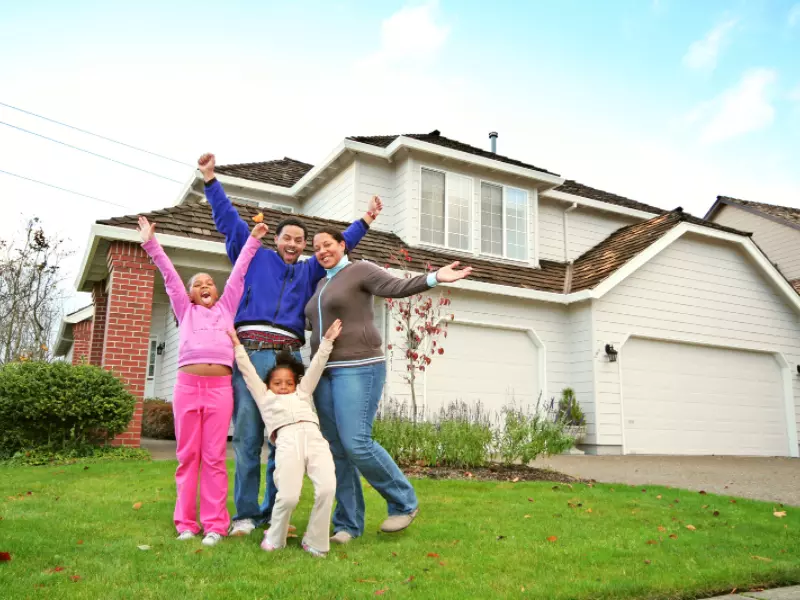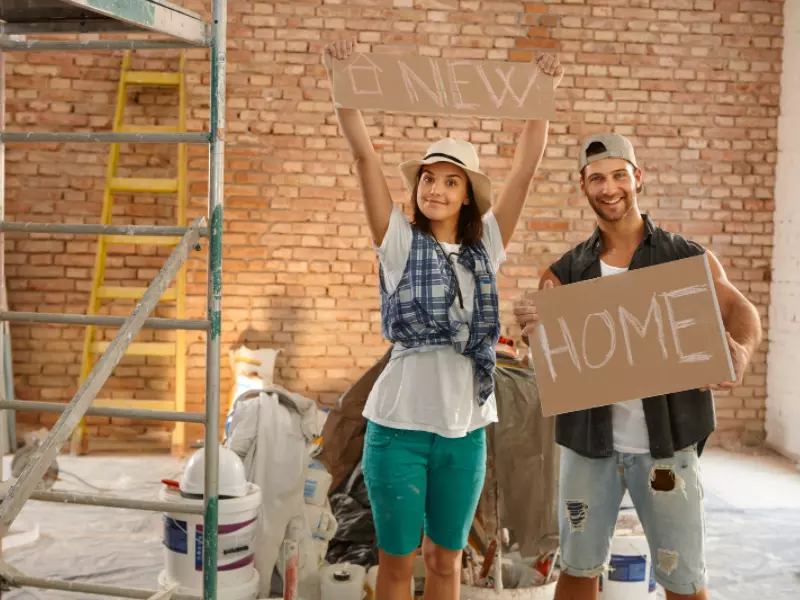
If you've spent any time looking through the real estate listings in your neighborhood or the one you want to live in, chances are you've noticed how red hot the real estate market in the US currently is.
According to the National Association of Realtors, as of June 2016, the median existing-home price for all housing types was $277,700, which is an increase of 6.2% from last year. With prices like that, you might be wondering if it's better to buy a home or build a custom home. Both have their pros and cons, but which one is better for you will depend on several factors: your budget, the amount of land you want, how long you plan to stay in the house, your personal preferences, and more.
In this article, we'll explore both options to help you decide which route is better for you and what you need to consider for each.
Buying a Home
The first option is buying an existing home. The main advantage to this is that it's usually cheaper and faster than building a new house from scratch. For starters, you're not paying for the land, which can be very expensive depending on where you live. And, unless you're planning to do a complete gut renovation, you'll also save on the cost and hassle of having to deal with contractors.

Another big advantage is that you can move in right away. Once you've found a house you like and closed on the deal, all you have to do is pack your bags and move in. If you're looking for a more affordable option or you're not sure how long you'll stay in the house, buying an existing home is usually the way to go.
Pros of Buying an Existing Home
-
Ready to Move in: Buying an existing property is typically your best option if you need to relocate soon. Construction projects take time to finish, whether you're building a home or purchasing a fixer-upper.
-
Less Expensive: On average, buying an existing property will save you money in the long run, but this depends a lot on the existing state of the real estate market. A housing loan is less hazardous than a land loan because it requires a smaller down payment and has a lower interest rate.
-
Customizable: Even if you don't plan to do a complete gut renovation, you can still put your personal touch on an existing home with some minor renovations and cosmetic changes.
-
Selective Location: If you're keen on living in a specific neighborhood or near a specific area of the city, then buying an existing home is pretty much your only recourse. Chances are, all available lots in the area would have already been built upon, so buying a home is the only way to achieve your homeownership goals.
-
Fewer Expenses Down the Road: An existing home would already have a lot of the major expenses catered for such as HVAC, landscaping, and so on, saving you the expense of having to invest in those features.
Cons of Buying an Existing Home
-
Stressful: The home-buying process can be stressful, especially if you're doing it for the first time. There's a lot of paperwork involved and you'll likely have to compete with other buyers who are also interested in the same house.
-
Less negotiation power: As the buyer, you have less negotiating power when buying an existing home because the seller usually has the upper hand.
-
Inflexible: Once you've bought the house, you're pretty much stuck with it. If there are any problems with the house, you'll have to either deal with them or pay to have them fixed.
-
Other Compromises: Even when you have a lot of options, finding a home that you like and that matches your taste can be difficult. You won't have many options because there are few properties for sale compared to the demand for residences.
Building a Home
The second option on the path to homeownership is building a custom home. Building a house from scratch allows you to design and customize every aspect of your home to match your specific taste and needs. And, if you own the land outright, you won't have to worry about a mortgage.

Pros of Building a Home
-
Customization: This is probably the biggest advantage of building a house from scratch – you have complete control over every aspect of the design, from the layout to the finishes.
-
Less Maintenance: New homes are built to current code and standards, which means they require less maintenance than older houses.
-
Amenities: When you build a house, you can also choose to include certain amenities that might not be available in an existing home. For example, if you're interested in solar power, you can have solar panels installed on your new home.
-
Potential for Energy Savings: New homes are also more energy-efficient than older homes. They're usually better insulated and have energy-saving features like double-paned windows.
-
No Mortgage: If you own the land outright, you won't have to worry about getting a mortgage, which can be a huge financial burden.
-
Appreciation: A brand-new house will generally appreciate more than an existing home, so you'll get a good return on your investment if you decide to sell in the future.
Cons of Building a Home
-
It Takes Time: Building a house from scratch can take anywhere from several months to a year or more, depending on the size and complexity of the house.
-
It's Expensive: Hiring an architect and a contractor will add to the cost of building a house. And, if you're not careful, the cost of construction can quickly spiral out of control.
-
There's a Risk of Delays: There's always the risk of delays when you're building a house. The weather can delay construction, and there might be unforeseen problems with the land that need to be addressed.
-
You Might Not Get What You Want: Even if you hire the best architect and contractor, there's no guarantee that you'll get the house of your dreams.
-
It's a risky investment: Building a house is a big investment, and there's always the possibility that something could go wrong. If the market crashes or interest rates rise, you could end up losing money on your investment.
Is it Cheaper to Build or Buy a Home?
While there's no right answer when it comes to deciding between buying an existing home and building a custom home, it ultimately depends on your needs, wants, and budget. If you're looking for a house that's move-in ready and you're not picky about the details, then buying an existing home is probably the way to go. But if you're willing to wait a little longer and you want complete control over the design of your house, then building a custom home might be the better option.

But, let's try and give more perspective to the two options by looking at which route is cheaper, on average.
According to U.S. Census Bureau estimates, the median sales price of new houses sold in February 2022 was $400,600, with the average sales price being $511,000, according to new house sales numbers. As of February 2022, the average existing house sale price was $357,300. This represents a 15% increase since February 2021, demonstrating the tremendous demand for housing. To compare the cost of an existing home to the cost of building one, you'd have to factor in the cost of renovations to make those homes livable, as well as the higher upkeep costs in existing homes. A 7.2 percent drop in the number of existing house sales was cause for alarm, indicating a lack of available properties. Expect higher pricing and fewer sales until the market finds its equilibrium.
Lastly, let's also look at another perspective when comparing building vs buying.
Major Costs of Building vs Buying a Home
Cost of Land: $15,000 - $50,000
Cost to Build a House: $100,000 - $250,000
Total Cost of Building: $115,000 - $300,000
Average Sale Price of Existing Home: $180,000
Average Closing Costs on Existing Home: $4,000 - 6,000
Total Cost of Buying: $184,000 - $186,000
As you can see from the table above, on average, it costs more to buy an existing home than it does to build a new one. But there are a few things to keep in mind when looking at these numbers. First, the cost of land can vary widely depending on where you live. In expensive cities like San Francisco or New York, the cost of land can be astronomical, while in more rural areas, it might be relatively affordable. Second, the cost of building a house also varies widely depending on the size and complexity of the house. A small house in a rural area is going to cost a lot less to build than a large, multi-story house in an expensive city.
Conclusion
So, while on average it might cost more to build a house than buy an existing one, there are a lot of factors that can affect the final price tag. It's important to do your research and figure out what option is going to be the best for you, based on your specific situation.
